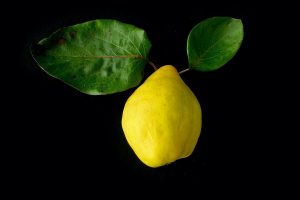by Daimys E. García
Mi Vida,
Writing does not come easily to me; writing during this time has been especially excruciating. A close friend once described me and my process as a ‘mortar and pestle.’ A grinding effort that may produce beautiful results, but does so only through a series of meticulous, painful, relentless breakings apart. ‘It would be easier,’ he explained, ‘if you just channeled a food processor instead—dump all the ingredients and out it comes: same results, a lot less suffering.’ At first defensive and annoyed by the description, I now hold a deep tenderness for it. The way of the food processor removes all of the knowledge-building. This labored process I learned in the kitchen with my grandmother who still, at 90 years old, uses a mortar and pestle to grind garlic. Through it, she taught me how to feel food, taught me how to smell for readiness, taught me patience and rhythm through pain. I think of how her grandmother taught her how to tolerate that pain for the knowledge it brings, and I take comfort in that ancestry.
And so… I write to you bleeding: this labor an expression of pain and tenderness.
Continue reading “[COVID-19 Pandemic: Worlds Stories from the Margins] Mi Vida”

